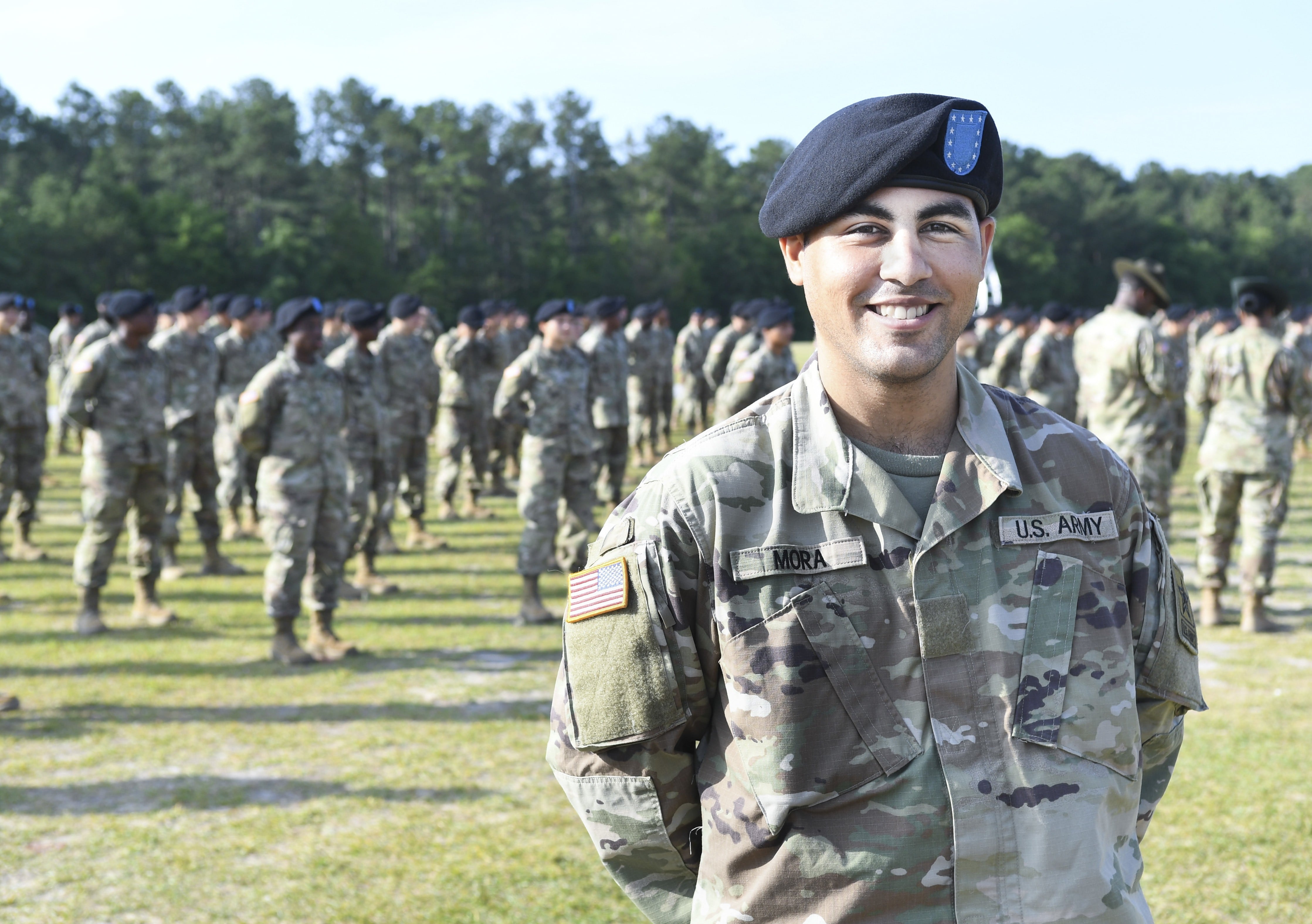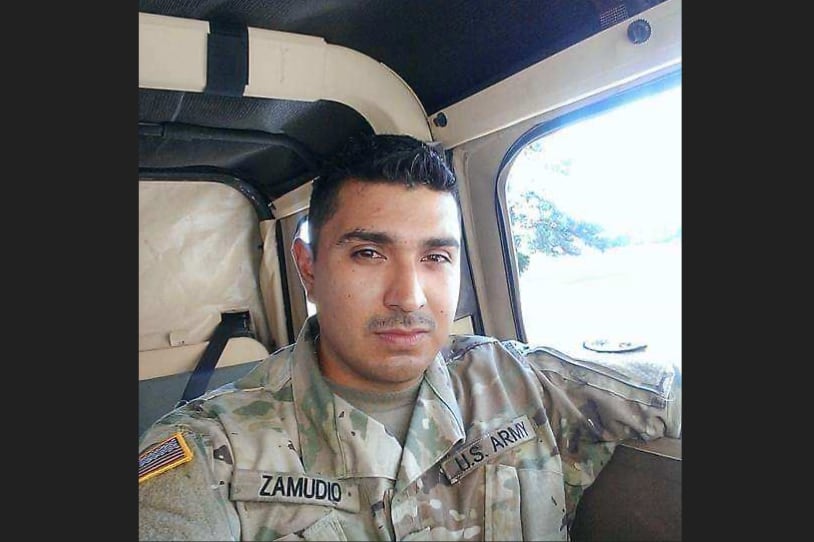Two of the first soldiers-in-training to contract coronavirus during basic combat training at Fort Jackson, South Carolina, have now recovered and officially graduated on May 14, the post said in a feature story highlighting their experiences last week.
The first trainees at Fort Jackson tested positive for COVID-19 on March 23, the post said at the time. Weeks later, the BCT location had a cluster of 50 coronavirus cases within one training battalion, Army Secretary Ryan McCarthy said in mid-April.
That cluster hadn’t grown at all by April 16, McCarthy said at the time, as he and the Army chief of staff announced that the service would resume sending recruits to BCT locations following a 14-day pause.
“I woke up in the morning and felt horrible. I had a high fever, and I had slight pain,” said Pvt. Carlos Mora, 21, one of the two soldiers chronicled in the release. “I wasn’t too bad, I was out of breath and had a cough. … Others had it worse. It scared me because they were about my age, too.”
The feature story didn’t state when and where the soldiers contracted the illness.
“I have no idea how I got the virus,” added Spc. Juan Guajardo, 36, the second soldier quoted in the release. “I got a fever, really weak and I had aches. I coughed a lot and when I blew my nose I had red spots. I went to the hospital and they did the test. I was positive.”
Both soldiers, originally assigned to 2nd Battalion, 39th Infantry Regiment, were placed in quarantine and would later be joined by other battalion mates, the post release stated.
“When we got our phones back I called my mom first and she was very worried about me,” Guajardo said. “She’s in Mexico and its bad there. I’m scared for her, but she is staying inside and away from people.”
Two weeks later, the soldiers had recovered and were again tested for the virus using Bio-Fire and GeneXpert devices recently acquired by health professionals on post to expedite testing.

Originally, the Army only had nine testing facilities across the force, meaning all swabs taken had to be shipped to those locations before a positive or negative determination was made. Since then, several types of devices have spread across the force to help with quicker turnarounds for tests.
Because both soldiers had missed three weeks of training, they were reassigned to 4th Battalion, lengthening their basic training cycle from the typical 10 weeks to 13 weeks, the post release stated. But all was not better immediately.
“It took me an extra week to breathe right again,” Mora said in the feature story. “I made it, though.”
Army Chief of Staff Gen. James McConville visited Fort Jackson in mid-April to observe changes the post made prior to resuming taking in new recruits following the 14-day pause.
RELATED

“Some of those soldiers have been there for six to seven weeks and they were doing buddy live-fires,” McConville said in mid-April. “During the training, they were 6 feet apart, and they were either wearing masks or gaiters when they got closer.”
The philosophy, according to McConville, is to create a bubble around basic combat training locations so that if any one recruit becomes ill, the number of infected is tightly controlled.
The Army is also quarantining recruits for their first two weeks of basic training, and all recruits will be screened for symptoms multiple times before arriving from military entrance processing stations across the country.
The cases at Fort Jackson highlighted the need to do than simply screen soldiers for symptoms, said McConville in mid-April.
“Even those who we tested after we had one or two positive cases, the ones we found out, were mostly asymptomatic," McConville added. “So they weren’t showing symptoms. That’s why the testing becomes very, very important, especially with the younger population.”
Fort Jackson last reported that it had four testing devices that can run approximately 750 tests per day.
Kyle Rempfer was an editor and reporter who has covered combat operations, criminal cases, foreign military assistance and training accidents. Before entering journalism, Kyle served in U.S. Air Force Special Tactics and deployed in 2014 to Paktika Province, Afghanistan, and Baghdad, Iraq.





